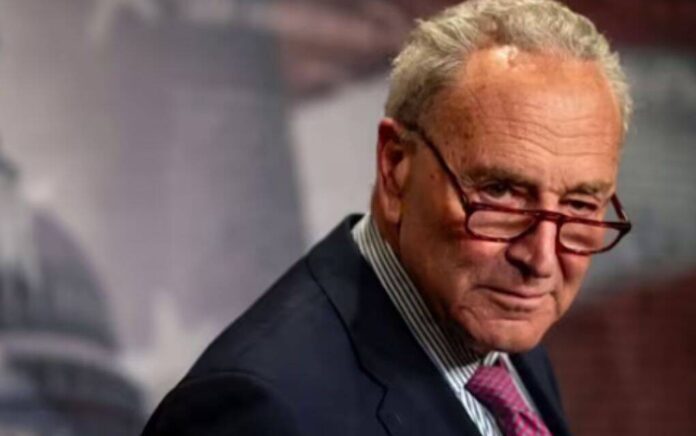
Schumer has been a hallmark of American politics for decades. Now he’s making waves yet again.
Because he issued a shocking demand to the FBI you’ll never believe.
Schumer’s Push for FBI Probe Raises Eyebrows
Senate Minority Leader Chuck Schumer, D-N.Y., has demanded an FBI counterintelligence threat assessment on the Jeffrey Epstein files, a move some see as a politically charged attempt to cast doubt on President Donald Trump’s administration.
Speaking on the Senate floor, Schumer outlined a three-point plan for the FBI: assess whether foreign intelligence could access sensitive Epstein file information through cyberattacks; identify potential vulnerabilities that adversaries might exploit to target Trump, his family, or other officials; and publicly demonstrate that the FBI is crafting strategies to counter these alleged threats.
Critics argue this push exaggerates risks to score political points, diverting attention from more pressing national priorities.
Schumer’s Transparency Demands Questioned Amid Partisan Tensions
At a Democratic leadership press conference, Schumer lambasted what he called an Epstein “cover-up,” taking aim at President Trump for not yet releasing the files as promised during his campaign.
He also criticized House Speaker Mike Johnson, R-La., for adjourning Congress early, avoiding a vote on a resolution to compel the Justice Department and FBI to disclose the documents.
“Americans are right to be angry over the lack of transparency,” Schumer claimed, warning that adversaries like Russia or China could exploit the files via cyberattacks to blackmail U.S. officials.
He referenced a recent Chinese-led hack of agencies like the Department of Homeland Security to bolster his case. However, supporters of Trump argue Schumer’s rhetoric inflates the issue, ignoring the administration’s commitment to releasing credible information while protecting victims’ privacy.
They suggest his focus on national security risks feels more like a partisan jab than a genuine concern, especially given the FBI’s existing cybersecurity efforts.
Trump’s Stance and House Response Highlight Measured Approach
House Speaker Johnson defended ending the legislative session early, arguing that the bipartisan resolution by Reps. Thomas Massie, R-Ky., and Ro Khanna, D-Calif., was hastily drafted and could have forced the release of unverified or false information, violating federal rules on grand jury materials.
Johnson emphasized his support for “maximum disclosure” but insisted on safeguards to protect victims, aligning with Trump’s stance that only credible evidence should be made public.
In a meeting with British Prime Minister Keir Starmer, Trump addressed his past with Epstein, explaining he banned him from Mar-a-Lago after Epstein repeatedly poached staff, a decision he described as straightforward.
“I threw him out, persona non grata,” Trump said, adding he never visited Epstein’s Caribbean island, unlike others like former President Bill Clinton, who he claimed went “28 times,” or former Harvard President Larry Summers.
Trump’s supporters praise his decisive break with Epstein and argue his administration is taking a responsible approach to the files, balancing transparency with legal and ethical considerations, while Schumer’s calls for immediate release risk sensationalizing a complex issue.



















